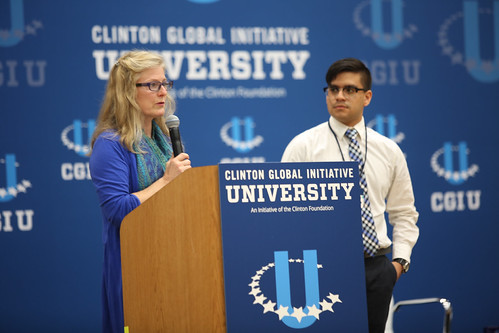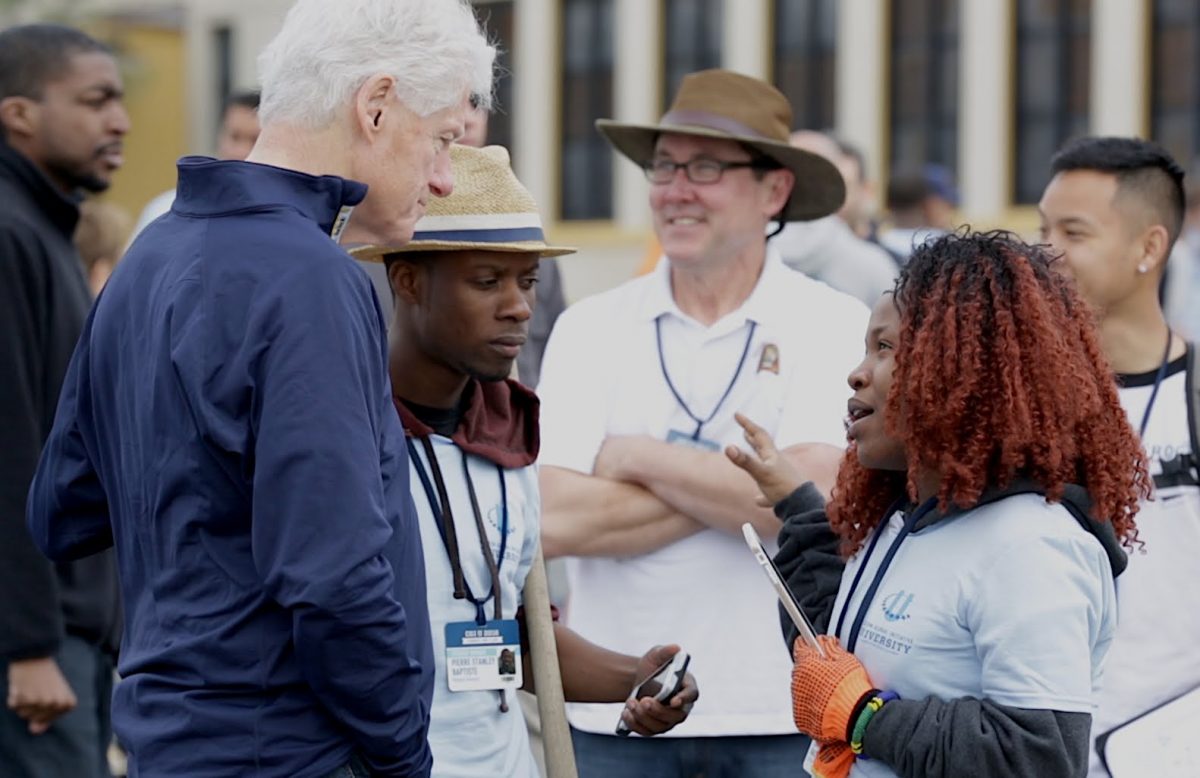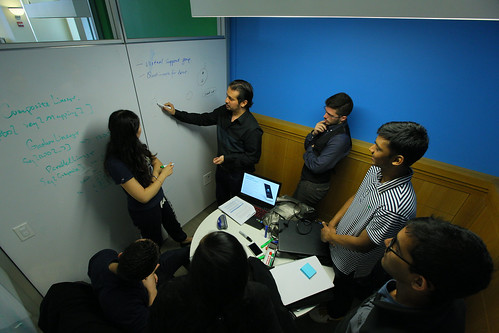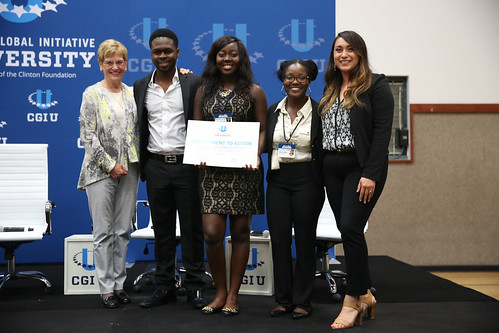Day: April 13, 2016
CGI U 2016: Committing to a Better World
By Nicholas Bobadilla
The campus was abuzz with excitement as over 1,200 students from around the world gathered at UC Berkeley for the Clinton Global Initiative University from April 1-3 to discuss and amplify their ideas for global change. In attendance were field experts, social entrepreneurs, and celebrities, including Kate Brandt, Google’s Lead for Sustainability; Obiageli Ezekwesili, Senior Economic Advisor of the Africa Economic Development Initiative; Salman Khan, Co-Founder and CEO of Kiva; Georgia Congressman John Lewis; and talk-show host Conan O’Brien.
This year’s CGI U attracted the largest group of students in its nine-year history, and was the first to raise over a million dollars in venture investments. To earn an invitation, students had to commit to a novel idea for change in local or global communities. “The price of entry is to commit to something,” said former President Bill Clinton. Participants committed to initiatives addressing climate change, poverty, public health and education. Among them were coding workshops for refugees, a comprehensive mental health curriculum pending as a bill in the Massachusetts State Legislature, and the use of drones to combat illegal poaching in Benin, Niger, and Burkina Faso.
Kicking off the conference was the Clinton Foundation’s Codeathon, an effort to leverage the technical skills of developers to develop technical solutions that promote health and wellness on college campuses. From Thursday afternoon to Friday morning, coders worked in teams to create platforms judged by Chelsea Clinton, Cisco’s Laura Quintana, and Kiah Williams of Supporting Initiatives to Redistribute Unused Medicine. Winners were announced at the closing plenary—tied for first were Quikko, an app that helps new students adapt to new college environments; and BeWell, which allows users to reflect and share their mental health challenges and experiences on a mobile platform.
Plenary sessions marked the beginning, middle, and end of the conference and involved remarks from social entrepreneurs, entertainers, and political figures who attested to the challenges and opportunities facing the crowd of young innovators. “We believe no one is ever too old or ever too young to make a difference,” said Chelsea Clinton in her opening remarks. “And that the earlier we start, the more likely we are to find the right partners for our efforts and have a better chance of making the positive difference we are called to do.” She pointed to the success of the Big Ideas @ Berkeley competition as an excellent example of how universities can support students trying to make the world a better place.
Former President Bill Clinton kicked off the conference with a theme that threaded throughout the weekend. He emphasized the urgency of climate change, global terrorism, and economic inclusion, yet he expressed confidence in efforts to counteract these problems. “It’s an exciting time to be alive, but it’s a constant race between positive interdependence and the forces of negative interdependence.” Backing his faith in the CGI U mission, he conveyed a sense of hope in students’ potential to make the world better. “Every time I see you, I become convinced that the positive forces will win.”
Additional topics at the forefront of the weekend’s plenaries included efforts to build inclusive communities as well as the “unintended consequences” of social impact work. Tied deeply within these conversations was the value of failure on the path to success. “Beyond every failure is an insight that can lead you to success,” said Catlin Powers, Co-Founder and CEO of One Earth Design.
Unintended consequences, according Dr. Powers, should be leveraged to support communities, who should be made an integral part of any social impact project. “Listen to the communities you’re allying yourself with,” said comedian and disability advocate Maysoon Zayid. In support of that mission, Zayid encouraged the audience to forge alliances with opposition groups, as finding commonalities is the best way to create sustainable and universal change.
Throughout the day, students attended working sessions focused on topics that spanned educating refugees during a crisis, developing a more sustainable economy, and boosting diversity and inclusion on college campuses. Students gathered before entrepreneurs, university officials and fellow students. A standout remark from Falkora co-founder Khaliya offered advice to prospective social entrepreneurs during a session dedicated to dismantling stigmas around mental health: “Starting a social enterprise doesn’t make me a social entrepreneur,” she said. “Social entrepreneurship is a mindset and thought process.” 
Following an impassioned speech on the durability of public education by UC president Janet Napolitano, audiences were treated to an interview between comedian Conan O’Brien and Bill Clinton, who again touched on his hope for the coming generation of change-makers. “They are the most poised to make change, because they ask the ‘how’ question.”
In support of CGI U’s commitment to community service, the conference ended with a Day of Action, led by President and Chelsea Clinton, who partnered with the Oakland Unified School District and Oakland Public Education Fund at the Havenscourt and Lockwood Campuses in Oakland. Students worked with community organizations to improve the area around campus by planting trees, organizing libraries, and painting murals. Also in attendance were UC Berkeley alum and NFL All-Pro and Co-Founder of Fam 1st Family Foundation, Marshawn Lynch, and Oakland mayor Libby Schaaf.
As much as the conference focused on pragmatism, participants were sent off with calls to commitment and passion. Premal Shah, Co-Founder and President of Kiva offered this advice: “First, design for love, then figure out how that can be scalable.” Congressman John Lewis advocated for a stance shaped by devotion and gratitude: “Stand up for what’s right and just,” he said. “Live a life of hope and be happy doing so.” And in his closing remarks, President Clinton reiterated what was perhaps the conference’s prevailing theme: “We can’t build a perfect world, but we can build a better world.”



